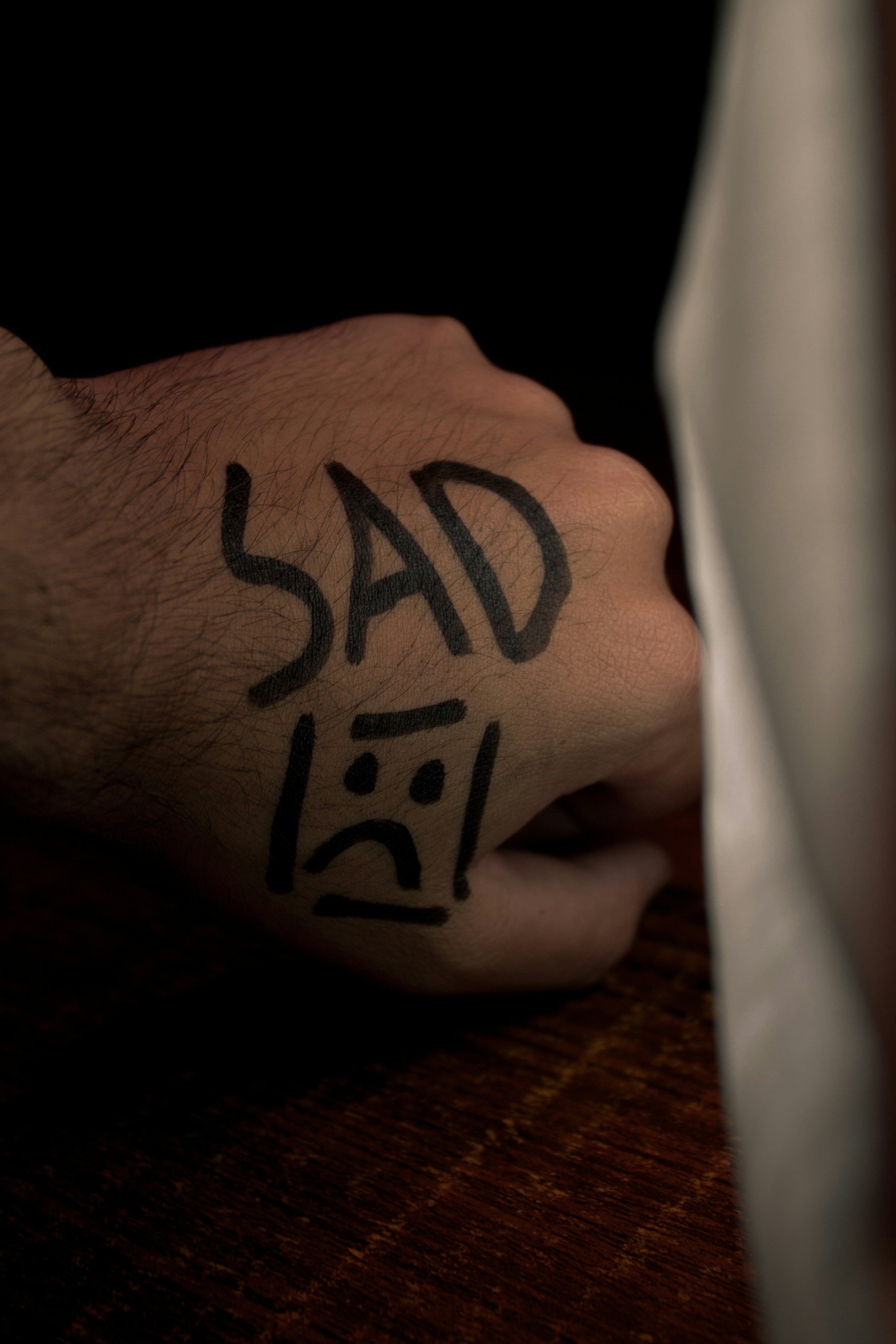100+ Heartfelt Sad Statuses to Capture Your Emotions

Introduction to Sad Statuses
Sad statuses serve as poignant reflections of our deepest emotions during times of distress. As individuals navigate through life’s inevitable challenges—such as heartbreak, loss, and sorrow—they often seek ways to express their feelings. This leads to the creation and sharing of sad statuses, a form of capturing nuanced emotions in succinct phrases. These expressions not only articulate personal anguish, but they also provide a means of connecting with others embarking on similar emotional journeys.
The use of sad statuses has become increasingly popular in the age of social media, where individuals can quickly share their sentiments with a broader audience. By posting a sad status, individuals are able to communicate feelings that might be difficult to articulate in person. In essence, these statuses can function as a cathartic release, allowing users to publicly acknowledge their struggles while also inviting empathy and support from their friends and followers. The shared experience of sorrow can foster a sense of community among those who find solace in similar sentiments.
Moreover, sad statuses can create a powerful dialogue about mental health and emotional well-being. When individuals post such expressions, it opens the door for conversations around these important topics. Furthermore, they can serve as a reminder that it is acceptable to experience sadness and that one is not alone in their feelings. Psychologists suggest that sharing emotional pain through such statuses can also assist in the healing process, as it encourages individuals to confront their experiences rather than suppress them.
In conclusion, sad statuses are a meaningful tool for expressing sorrow and fostering connections among those experiencing similar feelings. Through these brief articulations of pain, individuals can find comfort in community support, demonstrating the power of shared emotions in the human experience.
The Importance of Expressing Emotions
Emotions are an intrinsic part of the human experience, serving as vital indicators of our mental well-being. Among these emotions, sadness can sometimes feel overwhelming, yet it plays an essential role in our emotional landscape. Expressing sadness, whether through personal reflection or shared dialogues, helps individuals engage with their feelings and fosters healing. In psychology, the act of acknowledging one’s emotions is seen as a significant step towards emotional recovery. When people articulate their sadness, they often gain clarity and a deeper understanding of their emotional state.
Research suggests that sharing feelings, particularly through social media platforms, can facilitate a sense of connection and mutual understanding. This connection is crucial, as it encourages individuals to confront their feelings rather than suppress them. The digital age offers unprecedented platforms for self-expression, allowing individuals to articulate their emotions to a broader audience. Such actions can create communities where individuals resonate with similar experiences, providing support that may otherwise be unavailable in traditional social circles.
Furthermore, articulating sadness can break the stigma surrounding mental health issues. By openly expressing their emotions, individuals can democratize experiences that have historically been shrouded in shame or isolation. This normalization of discussing one’s feelings not only empowers those who share but also invites empathy and support from others. In essence, when feelings of sadness are expressed, the burden is often lightened, creating an atmosphere conducive to emotional healing and resilience. Ultimately, the act of expressing emotions serves as a bridge between isolation and community, fostering personal growth and psychological well-being.
Common Themes in Sad Statuses
Sad statuses often resonate with individuals by encapsulating familiar feelings and experiences that define human existence. Among the most prevalent themes are love and heartbreak, which frequently evoke deep emotional responses. For instance, phrases like “I never expected my heart to break this way” convey the anguish of lost love, reflecting the universal pain associated with romantic relationships. Such sentiments highlight the vulnerability that accompanies deep emotional connections, allowing others who share similar experiences to find solace in the acknowledgment of their own heartbreak.
Another recurring theme is loneliness. Expressions such as “Sometimes, being surrounded by people only makes me feel more alone” underscore the paradox of isolation that can persist even in social settings. This theme connects with many individuals, particularly in a world where social interactions often overshadow genuine emotional connections. Sad statuses reflecting loneliness resonate because they portray an experience that is both relatable and poignant, emphasizing the human desire for meaningful companionship.
Loss also permeates many sad statuses, capturing feelings of grief and nostalgia. For example, “Every memory of you is a reminder of what I’ve lost” expresses the painful reality of losing a loved one. This sentiment resonates widely as it captures the void left in the wake of loss, illustrating how deeply intertwined memories can be with our emotional state. As people grapple with their own experiences of loss, such statuses serve as powerful reminders of shared grief.
Lastly, existential reflection forms another common theme in sad statuses. Thoughts like “What is the purpose of my existence?” illustrate the internal struggle many face when contemplating their place in the world. This theme appeals to those who feel a disconnect with life, fostering a sense of community among individuals wrestling with similar existential questions. The ability to articulate these themes links individuals across diverse backgrounds, reminding us all of our shared emotional experiences.
Top 25 Sad Statuses for Heartbreak
Heartbreak is an indescribable emotion that often leaves individuals feeling lost and vulnerable. It is a unique blend of sorrow, longing, and sometimes, an erratic yearning for what once was. The following curated list of 25 sad statuses encapsulates these feelings, reflecting the profound sadness that accompanies the end of a meaningful relationship or the ache of unreciprocated love. Each status serves to articulate the struggles experienced during such emotionally tumultuous times.
1. “How can I move on when every song reminds me of you?” – A sentiment that captures how pervasive the memories of a lost love can be.
2. “I never knew heartbreak could feel like a physical pain.” – Describes the intensity of emotional distress.
3. “The memories we created are haunting me in my silence.” – Reflects on the permanence of shared moments.
4. “I thought we were forever, but forever came and went.” – A realization of the impermanence of love.
5. “I’m learning that love doesn’t always last.” – A statement on the harsh realities of relationships.
6. “It hurts to breathe because every breath feels empty without you.” – Expresses the depth of longing.
7. “Sometimes, I wish I could turn back time to before I met you.” – A wish that captures regret.
8. “My heart is a puzzle with a missing piece.” – A metaphor for feeling incomplete without a loved one.
9. “Every love song is a reminder of your absence.” – Illustrates how love and loss intertwine.
10. “It’s hard to forget someone who meant so much.” – A reflection on the lasting impact of a strong connection.
11. “You were my dream, but now you’re a nightmare.” – Expresses the transition from happiness to pain.
12. “I’m still searching for you in every crowd.” – A haunting realization of expectation versus reality.
13. “Love is supposed to feel good, but mine only feels like a burden.” – Highlights the dark side of love.
14. “Why does love hurt so much when it’s supposed to heal?” – A contemplative thought on love’s duality.
15. “My heart is heavy with the weight of your absence.” – A poignant image of sorrow.
16. “You were my light, but now I’m lost in the dark.” – Symbolizes the loss of guidance and warmth.
17. “Letting go is harder than holding on.” – A deep acknowledgment of the difficulty in moving on.
18. “I never expected to miss you this much.” – Captures the unexpected depth of feelings after a breakup.
19. “Once, I was your world; now I’m just a memory.” – Highlights the shift in importance post-relationship.
20. “Heartbreak is a cruel teacher.” – Reflects on the lessons learned through pain.
21. “You left, and I’m still trying to understand why.” – A sentiment of confusion and seeking closure.
22. “Your love was a fairytale, but I’m living in a nightmare now.” – A stark contrast between expectations and reality.
23. “Every love story is beautiful, but ours is my heartbreak.” – A personal take on a once-beautiful relationship.
24. “I keep replaying our last conversation like a broken record.” – Illustrates the cyclical nature of grief.
25. “If only I could erase you from my heart but still keep the memories.” – Expresses the desire to hold onto the good while releasing the pain.
These statuses offer a glimpse into the pervasive sadness of heartbreak. They articulate the complex emotions that arise when love fades, serving as a source of solace for those grappling with similar experiences.
Top 25 Sad Statuses About Loneliness
Loneliness is a profound emotional experience that many individuals encounter at various points in their lives. It transcends physical isolation, often manifesting as a sense of disconnection from oneself, others, and the world. Social loneliness can arise from a lack of meaningful relationships, while emotional loneliness may stem from not being understood or supported by those around us. Additionally, existential loneliness reflects feelings of isolation even in the presence of others, leading to a deep sense of discontent. In this section, we will explore 25 sad statuses that poignantly convey the ache of loneliness, illustrating its complex nature and impact on mental health.
1. “Sometimes the silence around me is deafening.” 2. “Being surrounded by people feels more isolating than being alone.” 3. “I wear a smile, but it’s just a mask to cover my emptiness.” 4. “Loneliness is not just the absence of people, it is the absence of understanding.” 5. “Even in a crowd, I often feel like a ghost.” 6. “The hardest part about loneliness is that it feels like an invisible chain.” 7. “Every laugh feels hollow when you’re the only one holding the pain.” 8. “I could be in a room full of friends, and still feel alone.” 9. “Loneliness is a heavy blanket I can’t seem to shake off.” 10. “I thought being alone could be peaceful, but it’s just a void.” 11. “Even when I reach out, I am met with silence.” 12. “The company of others only highlights my solitude.” 13. “Loneliness has a way of creeping in when you least expect it.” 14. “It’s sad how you can feel lonely even with someone by your side.” 15. “Every night feels longer when there’s no one to share it with.” 16. “Sometimes, I wonder if I’m meant to be alone.” 17. “Isolation is an unwanted companion I can’t seem to shake.” 18. “I long for a connection that seems forever out of reach.” 19. “The emptiness can be more suffocating than the crowd.” 20. “My heart feels heavy under the weight of solitude.” 21. “Every shared moment becomes a reminder of my solitude.” 22. “Why does the world feel so vast when I’m surrounded by faces?” 23. “Wishing for someone who truly sees me among the faceless.” 24. “Loneliness is a shadow that grows darker in the light of day.” 25. “Sometimes, the hardest battle is the one within myself.”
Recognizing these feelings is essential, as prolonged loneliness can adversely affect mental health, leading to issues such as anxiety and depression. Addressing loneliness involves cherishing the connections we have, seeking new relationships, and fostering a supportive environment. Embracing the importance of social and emotional bonds can be a pathway toward alleviating loneliness, encouraging individuals to reach out and build connections, no matter how daunting it may seem.
Top 25 Sad Statuses on Loss
Experiencing loss can be one of the most profound and painful aspects of life. Whether it pertains to the death of a loved one, the end of a relationship, or the passing of a cherished pet, feelings of grief can be overwhelming. During these challenging times, many individuals turn to social media or personal reflections to express their emotions. Below are 25 heartfelt sad statuses that articulate the sense of loss, allowing people to resonate with their own feelings of grief.
1. “Every moment without you feels like an eternity.”
2. “You may be gone, but your memories will forever live in my heart.”
3. “The hardest part of losing you is not having the chance to say goodbye.”
4. “Grief is the price we pay for love, and I would pay it a million times over.”
5. “Your absence has created a void that nothing can fill.”
6. “Some days, the memories feel like a sweet embrace; other days, they are a heavy weight.”
7. “It’s not what we have lost; it’s what we wish we still had.”
8. “You will always be a part of me, even if you are far away.”
9. “The heart never forgets; it holds onto the sorrow and the joy you brought.”
10. “Time does not heal all wounds; it just teaches us how to live with them.”
11. “Crying for you is not a sign of weakness; it is a testament of love.”
12. “The silence left in your absence is deafening.”
13. “Memories are the treasure we keep for those we have lost.”
14. “I look for you in every corner of my heart, only to find you missing.”
15. “In the garden of memories, you will always bloom.”
16. “Loss is an inevitable part of life, but the pain can feel unending.”
17. “Even though you are gone, your spirit is still my guiding light.”
18. “The laughter we shared echoes in the chambers of my soul.”
19. “A part of me died when you left, but I carry your memory forward.”
20. “Nothing can bring you back, but I cherish the days we had together.”
21. “Grieving is a testament to the love we shared. It is proof of how much you mattered.”
22. “Each day without you is a reminder of what I’ve lost.”
23. “You were my favorite hello and my hardest goodbye.”
24. “Sometimes I feel you with me, and it brings both comfort and pain.”
25. “Your legacy continues to affect my life in ways I never imagined.”
These statuses not only reflect the deep emotional currents of loss but also provide a poignant reminder that grief is a shared experience. Communicating feelings through words can be a powerful way to find comfort during times of sorrow. For many, expressing these sentiments offers relief and connection amidst the pain.
Top 25 Sad Statuses Reflecting Existential Thoughts
Existential thoughts often emerge during challenging periods in life, prompting individuals to reflect on profound questions regarding existence, meaning, and human experience. These contemplations can lead to feelings of sadness and introspection. Below are 25 sad statuses that encapsulate these sentiments, each resonating with themes of disappointment, longing, and the quest for understanding.
“Sometimes, I wonder if I am merely a spectator in my own life, watching the moments pass by.” This sentiment speaks to the feeling of disconnection from one’s experiences, raising questions about personal agency. Another poignant status is, “Life feels like a series of unanswered questions, each one leading to more confusion.” This reflects the innate human desire to find clarity amidst life’s chaos.
“Is it too much to ask for a moment of peace in this chaotic world?” captures the essence of existential weariness many individuals experience. Additionally, “In the end, what truly matters if everything fades away?” poses a philosophical dilemma about the value of our pursuits. “I often find myself lost in thoughts of what could have been,” illustrates the tendency to dwell on past decisions, showcasing the weight of regret.
As we delve deeper, you might resonate with statuses like, “Sometimes, I wonder if my dreams are merely an escape from reality.” This reflects the fear of unfulfilled potential. Another introspective thought is, “People come and go, but the emptiness remains.” It emphasizes the fleeting nature of relationships while questioning their true significance.
These statuses serve as a mirror to our inner struggles, revealing that existential thoughts are a natural part of the human experience. They resonate with many emotions tied to life’s unpredictability and the search for meaning amidst the sorrow. The journey of navigating through these feelings can lead to a greater understanding of oneself and the world at large.
How to Use Sad Statuses Meaningfully
In today’s digital age, sharing one’s emotions through social media has become a common practice. Sad statuses can serve as a powerful tool for expressing feelings of sorrow, loss, or loneliness. However, it is essential to approach the sharing of sad statuses with mindfulness and intention. By doing so, individuals can foster healing and create meaningful connections with others who may be experiencing similar emotions.
One effective way to use sad statuses is to encourage open dialogue about feelings. Posting a heartfelt status can spark conversations that allow others to share their own experiences. When individuals realize they are not alone in their struggles, it can lead to a collective understanding and support system. This sharing of emotions often acts as a first step in emotional healing, as it promotes vulnerability and empathy among peers.
Moreover, while it is important to acknowledge and express sadness, it is equally crucial to balance these expressions with moments of positivity and reflection. Following a sad status with a hopeful or inspiring note can provide a holistic view of one’s emotional state and demonstrate the dual nature of life. This not only validates feelings of sadness but also reminds individuals that hope and healing are attainable. Sharing moments of gratitude, joys, or even lessons learned from difficult times can create a sense of equilibrium.
Additionally, seeking support from friends or mental health professionals when experiencing prolonged sadness is vital. A sad status can act as a cue for oneself and others, marking the importance of reaching out for help or conducting self-care practices. This proactive approach holds the potential for personal growth and deeper connections with others, reinforcing the importance of community and support during challenging times.
Conclusion: Embracing Vulnerability
In a world that often prioritizes strength and resilience, it is fundamentally important to recognize that expressing sadness is a vital aspect of the human experience. Sad statuses serve not only as a form of communication but also as a means of embracing and processing one’s emotions. By sharing these candid feelings, individuals can find solidarity and connection with others who resonate with their experiences. This vulnerability fosters an environment where empathy can thrive, encouraging open discussions about emotions and mental health.
When individuals post sad statuses, they invite others into their reality, creating spaces for understanding and support. This act of sharing can be cathartic, leading to personal relief while simultaneously bridging emotional gaps within communities. Rather than viewing vulnerability as a weakness, it should be celebrated as a courageous act of authenticity. The very act of expressing sorrow can encourage others to do the same, dismantling societal stigmas surrounding emotional expression.
Moreover, by embracing their emotional spectrum, individuals can inspire others to explore their own feelings, leading to greater self-awareness and emotional growth. The act of posting sad statuses can highlight shared struggles, become a catalyst for conversation, and ultimately foster stronger connections among readers. This is particularly important in today’s digital age, where isolation often prevails, and genuine connections are increasingly rare.
In conclusion, it is essential to create a culture that normalizes the expression of sadness and vulnerability. By courageously sharing our emotional truths, we not only alleviate our own burdens but also contribute to a more empathetic society. Therefore, let us embrace our emotions, acknowledging that sadness is a natural component of life, deserving of both recognition and respect.






